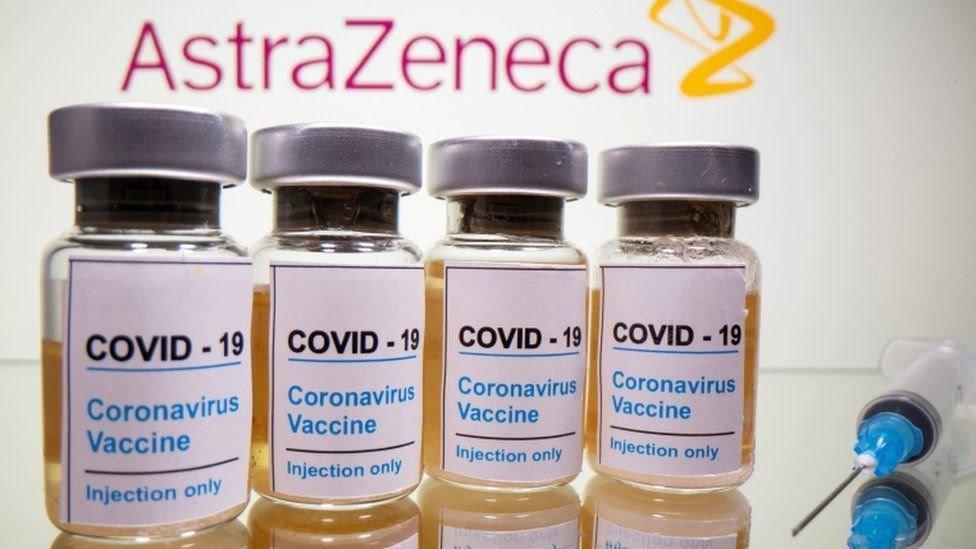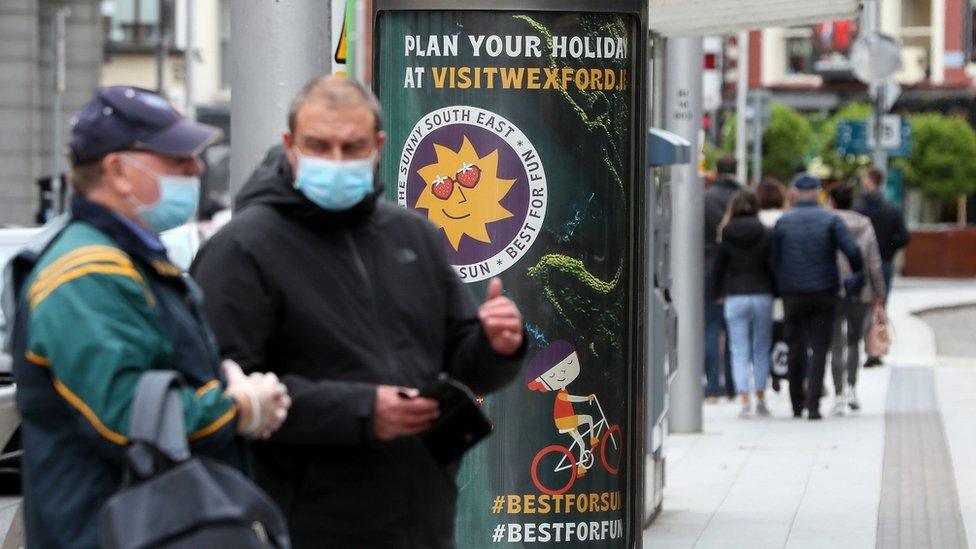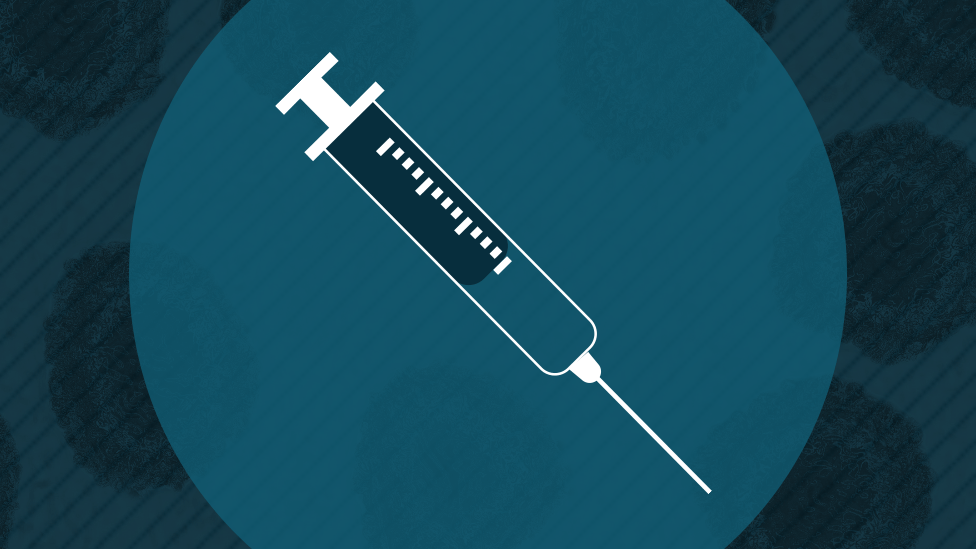AstraZeneca: Irish health body recommends vaccine restriction
- Published

The Oxford-AstraZeneca vaccine should be limited to over-60s, the Republic of Ireland's National Immunisation Advisory Committee (NIAC) has said.
The body oversees the Covid-19 vaccine rollout programme in the Republic.
It said that the vaccine's benefits may vary by age and that, as other vaccines are available, it has revised its vaccine recommendations, reports RTÉ, external.
All AstraZeneca vaccination clinics planned for Tuesday should now be cancelled, it has also been advised.
The Irish Health Service Executive (HSE) said it would "advise further in terms of wider implications for the administration of the vaccination programme".
At a meeting on Monday night, the NIAC recommended that the jab should not be used for anyone under 60, including those with very high or high risk of severe coronavirus disease.
It also states:
Those aged 60 and older should receive their second dose 12 weeks later as scheduled.
Those aged under 60 years with a very high risk or high-risk medical condition should receive their second dose 12 weeks later as scheduled.
Those aged under 60 years without a very high risk or high-risk medical condition should have the scheduled interval between doses extended to 16 weeks to allow further assessment of the benefits and risks as more evidence becomes available.
'High uptake of vaccine in every age group is needed'
Prof Karina Butler, chairperson of the NIAC, said the benefits were being considered against the risk of reported blood clot incidents.
"While this is an extremely rare condition, consideration must be given to the fact that it has a very high risk of death or severe outcome," she said.
"As the risk/benefits of [AstraZeneca] vaccine may vary by age and as alternative Covid-19 vaccines are available, NIAC has revised the recommendations for use of this vaccine."
She added that the group "strongly encourage everyone to accept the Covid-19 vaccine they are offered".
"A high uptake of vaccine in every age group is needed if Covid-19 is to be controlled, so that public health restrictions may be safely removed," she said.
The Republic's Deputy Chief Medical Officer, Dr Ronan Glynn, said he hoped the recommendation would not have an impact on the easing of restrictions in the country.
Speaking on RTÉ's Tonight With Claire Byrne, he also said it was too early to consider stopping the use of the vaccine altogether.
Dr Glynn said it remained a "pivotal and important" part of their vaccination programme.
He also said health officials would continue to monitor the rollout of the AstraZeneca vaccine domestically and internationally.
On Monday, the Republic of Ireland recorded no Covid-19-related deaths, with the total number of deaths from the virus remaining at 4,785.
Another 394 people have tested positive with coronavirus, taking the total number of confirmed coronavirus cases in the Republic to 241,330.
As of 10 April, 1,058,394 Covid-19 vaccines had been administered in the Republic.
Related topics
- Published12 April 2021

- Published7 April 2021

- Published28 May 2021
